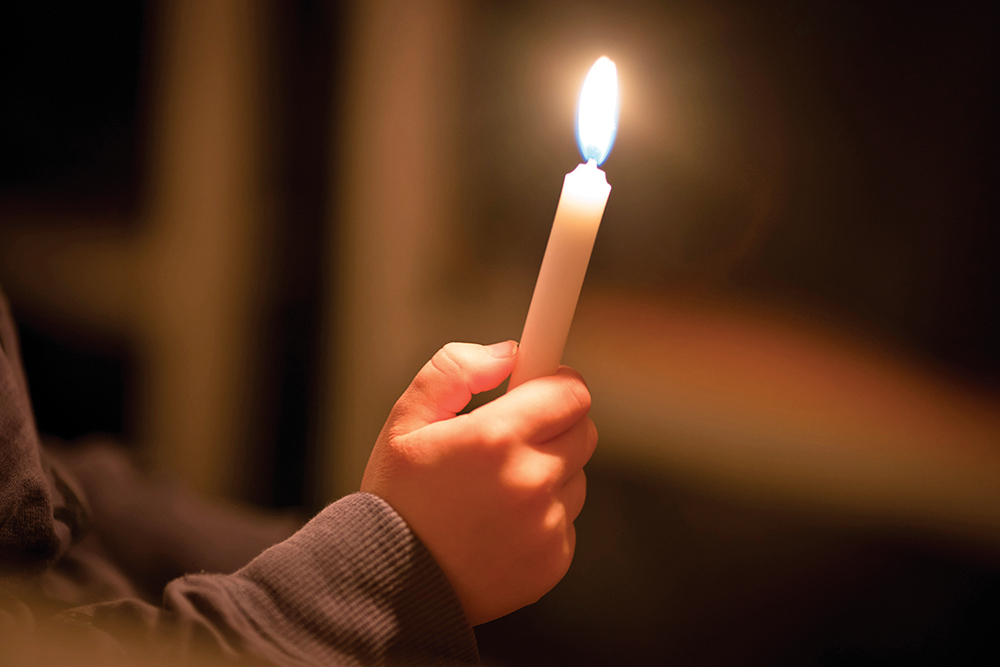
Bereishit 28: 1-18
Once, in the town of Paramus, a man had a dream. It wasn’t a particularly unusual dream. It wasn’t really that scary. But he had it many nights in a row, and it bothered him. It got to the point where he didn’t want to go to sleep because he knew the dream would come. But sleep he did, and back came the dream.
He tried many things to help the dream go away. Sleeping pills just made the dream longer, and sometimes it made the colors more vivid.
Doctors didn’t help, either. His regular doctor listened carefully, nodded in earnest, and then referred him to a psychiatrist. The psychiatrist made him lie on a couch and tell her all about his relationship with his mother. She then explained that this might be a long, arduous process and told him to come back the next week. Nothing was helping.
With nowhere else to turn, the man went to his local rabbi for advice. The rabbi was young, but he had a reputation for great wisdom, and it was said he could make a bar mitzvah boy sing like a nightingale.
“You must go to the Maggid of Maywood,” the rabbi told the man. “He can help you understand your dream.”
“But isn’t the Maggid a storyteller?” the man asked.
“Yes,” said the rabbi. “But he is also a dreamer, and sometimes it takes one to know one.”
The man thanked the rabbi and set out to find the Maggid of Maywood. The Maggid lived on a small cul-de-sac just outside the center of Maywood. The grass on the front lawn was dry and withered, but the shrubs weren’t half bad. A few hemlocks, a manicured rose bush and an interesting Japanese maple, peppered with a few small rhododendrons and a pink azalea.
The man knocked at the Maggid’s door.
“Come in,” said the Maggid.
The man let himself in and found the Maggid in the kitchen, sitting at a yellow Formica table that could best be described as harvest gold.
The man stared at the Maggid of Maywood with a look of surprise.
“Yes, yes, I know. The kitchen is hideous. But my mother decorated it in the 70s, and I haven’t had the heart to change it.”
“Rebbe, I’ve been having this recurring dream, and it’s driving me crazy.”
The Maggid sat up in his chair and rubbed his hands together in excitement.
“Let’s have it.”
“Rebbe, in my dream I’m running up the down escalator in Paramus Park. No matter how fast I run, I can’t get to the top. I can see the ice cream store way up on the second level. I can almost taste the mint chocolate chip cone with rainbow sprinkles. But with each step I sink closer to the first level. And on the first level, there is a giant sock store, the biggest I’ve ever seen. And it has thousands of socks. Argyles, plaids, knee socks. It’s horrible. I sink lower and lower on the escalator, and then, just before I land in the sock store, I wake up.”
“I see,” said the Maggid. Are there trees and grass in this park?”
“What park?”
“This Paramus Park you’re talking about.”
“No, Rebbe, Paramus Park is a shopping mall,” said the man. “But it does have a waterfall.”*
“A shopping mall! Go figure. Well, your dream is quite clear to me. As clear as mud after a heavy rain. Evidently, the top of the escalator is where you want to be, and the bottom is where you’ve been and do not wish to return. Though you struggle to reach the top, you do not succeed, though ice cream must be a strong incentive for you. Mint chocolate chip is your favorite, I presume?”
“Yes, Rebbe.”
“And this ice cream store, it’s kosher?”
“Yes, Rebbe.”
“Good. Well, your dream has many levels. Notice that though you never manage to reach the top, you always wake up before you hit bottom. Do socks have a special significance to you?”
“Not really. I just don’t like shopping for them.”
“I see,” said the Maggid, stroking his beard. “Clearly you are someone who tries very hard, and you don’t give up easily, but you’re having trouble reaching your goals.”
“That’s true, Rebbe.”
“I’m reminded of the dictum from Pirkei Avot, the Ethics of the Fathers, ‘Lo alecha hamelacha ligmor, velo ata ben chorin lehivatel mimena. It is not your place to finish the job, but you are not free to stop trying.” In your dream, you’re stuck going the wrong way, but you do not give up. I think you’re trying to be a better person, elevating yourself in doing mitzvot. It’s like Yaakov discovering the angels on the ladder in his dream at Beit El in Parshat Vayetzei, except the angels go up and down freely, and you’re stuck in a rut. Of course, he was dreaming of a ladder of angels going up to God, and you are in a shopping mall, so perhaps you need to assess what’s really important in life. There must be more in your worldview than socks and ice cream.”
“So, what should I do, Rebbe?”
“I might suggest you find a new approach to life. Clearly going up the ‘up’ escalator might be a better approach.”
“I see,” said the man, lost in thought.
“So, what else can I do for you?” asked the Maggid.”
“Rebbe, if Beit El is a holy place because of Yaakov’s dream about the angels, should the escalator at Paramus Park be holy to me because of my dream?”
“Not exactly,” said the Maggid. “However, just after Yaakov wakes up from his dream of the ladder, he says, ‘Achen yesh Hashem bamakom hazeh, va’anochi lo yadati. Surely Hashem is present in this place and I did not know.’ Many Rabbis feel that Yaakov’s statement means that the place where he had his dream has a special holiness. I see it differently.
“Yaakov is about to leave Israel and is worried that God will only be with him there. His dream tells him that Hashem will be with him everywhere. God’s presence can be felt anywhere. Still, a shopping mall is a bit of a stretch. As far as I can tell, there are no holy places in any shopping malls in New Jersey. However, judging from the sheer volume of malls we have in New Jersey and the habits of the people who live here, perhaps there should be.”
*Well, it used to have a waterfall.
By Larry Stiefel













